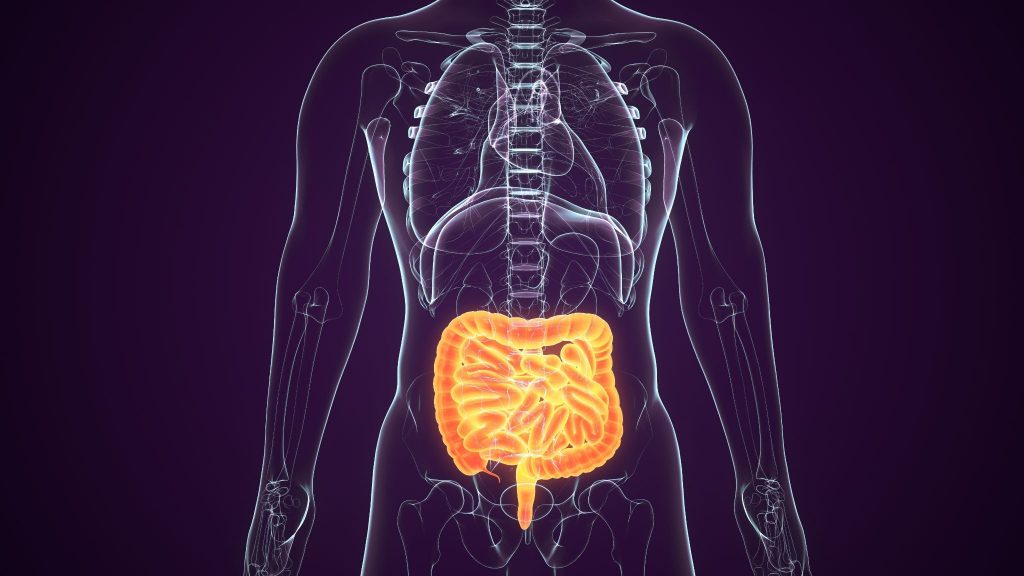
Can’t keep food down? Does it hurt to poop?
Digestion problems can disrupt your everyday routine and negatively impact your quality of life. If standard treatments have failed to provide relief, you may be dealing with a more serious underlying problem, such as blocked intestines or small bowel obstructions (SBO). This is even more likely if your symptoms include vomiting, painful bowel movements, or stringy poop. Read on to learn more about the symptoms associated with intestinal obstruction and what to do if you suspect you have SBO.
Are You Experiencing Common Bowel Problems or Intestinal Blockage?
Gastrointestinal problems such as acid reflux, gluten sensitivity, irritable bowel syndrome, hemorrhoids, and the like are pretty common. Physicians usually advise people with common bowel problems to drink more water, eat more fiber, and get more exercise. They may recommend laxatives, probiotics, and supplements – or they may prescribe medications.
On the other hand, blocked small intestines can be overlooked because it is less common. More severe gastrointestinal problems are more regularly misdiagnosed. These include:
- appendicitis
- perforated or ruptured organs
- inflammatory bowel diseases
- cancer, bleeding
- blockage of blood flow
Seven Symptoms of Intestinal Blockage
How do you know whether you have a common bowel problem or whether your small intestines are blocked because of your gastrointestinal disorder?
Bowel obstructions cause these symptoms:
- No bowel sounds:
- The absence of bowel sounds indicates under-active or inactive intestines. This means that waste is not being eliminated from the body on time. A buildup in your gastrointestinal tract can result in a life-threatening rupture.
- Nausea and vomiting:
- Food and liquids that should be moving forward are moving backward. If this happens often enough, other problems, such as ulcers, gastritis, and gastroesophageal reflux disease (GERD), may be present.
- Stomach cramps:
- These are pains that may come and go.
- Diarrhea:
- If the bowel is partially blocked, diarrhea may occur.
- Swelling or bloating (distention):
- Liquids and gases can build up in the abdomen.
- Pain or tenderness:
- The pain is often around or just below the belly button but can be present in other areas.
- Constipation and the inability to pass gas:
- If the bowel is completely blocked, no material passes.
- These are signs of a complete blockage, called a total bowel obstruction.
Traditional Small Bowel Obstruction Treatment Options
People with blocked intestines may have to be hospitalized to stabilize their condition. Nonsurgical treatment for intestinal blockage include:
- An IV to replenish fluids
- Introduction of analgesics to relieve pain
- Liquid nutrition.
- Physicians may introduce a nasogastric tube (NG) to help empty the stomach to reduce swelling in the abdomen.
If conservative treatments do not resolve the situation or if repeated obstructions occur, surgery may be performed to remove the block along with any damaged tissue. However, bowel obstruction surgery can create even more scar tissue that can increase the likelihood of future bowel obstructions.
The Best Nonsurgical Treatment for Intestinal Blockage
What if you didn’t have to go to surgery and the nonsurgical treatment was successful? You’re in luck. Because blocked intestines can be are caused by abdominal adhesions (bands of scar-like tissue that attach to organs, muscles, and other structures), they can be dissolved!
Fortunately, there is an effective non-invasive treatment for abdominal adhesions called the Wurn Technique®. It is a manual adhesion release physical therapy shown to reduce adhesions and significantly improve SBO symptoms without surgery.
With this method, highly trained and skilled therapists use their hands to detach adhesions, barrier by barrier. In doing so, they break down the adhesions and restrictions that have been created over a lifetime of healing from inflammation, infection, trauma, and abdominal or pelvic surgery. These Wurn Technique therapists apply pressure in very site-specific affected areas. This pressure is titrated (slowly adapted) to reduce the adhesions formed in the body over time and return the intestines to normal mobility, tone, and function. When asked how they feel 90 days after treatment, patients have overwhelmingly reported improved quality of life.
You May Need to Advocate for Yourself
Unfortunately, many physicians are either unaware of manual adhesion release small bowel obstruction physical therapy or have not taken the time to review results and are therefore not yet convinced of its effectiveness.
If you experience severe abdominal pain or other bowel obstruction symptoms, you should seek immediate medical care. The highly trained therapists at Clear Passage can act independently or as an extension of your physician’s care.
Either way, Clear Passage therapists will screen you thoroughly for contraindications and provide your physician with an extensive Initial Evaluation and Discharge Summary.
Patients often describe Clear Passage therapy as a profound relief, saying it is “something my body has needed for a long time.” Their therapists often hear, “you have found the area I’ve been telling my doctor(s) about for years – but they couldn’t find anything.”
To avoid repeated hospitalizations and/or surgery, contact Clear Passage for treatment. Clinical research has quantified and validated Clear Passage results published in some of the world’s top medical journals.
Related Content:
Research and Success Rates
- Study Results for a Non-Surgical Bowel Obstruction Treatment
- Study Results for a Non-Surgical Bowel Obstruction Treatment
- Bowel Obstruction Success Rates
Questions Answered
- Recurring Small Bowel Obstruction Treatment Frequently Asked Questions
- The Most Common Causes of Bowel Obstruction and How to Prevent It
- Bowel Blockage Symptoms
- How to Prevent Bowel Obstruction
- Can Diverticulitis Cause Bowel Obstruction?
- Seven Signs of Intestinal Blockage
- What to know before accepting an IBS Diagnosis
- How Long Does a Bowel Obstruction Last?
- What is the Cause of a Small Bowel Obstruction and What Are Your Options for Treatment?
- How Will My Lifestyle Change with Small Bowel Obstructions?
- Is There a Natural Treatment for Small Bowel Obstruction?
- What SBO Patients Can Expect From Treatment
Treatment
- At a Glance: Bowel Obstruction
- Bowel Obstruction
- Bowel Obstruction – Need Help Now?
- Bowel Obstruction Treatment
- [Infographic] The Main Causes of Bowel Obstructions
Patient’s Stories
- Bowel Obstruction: Patient Story Update
- Video Testimonial – A Mother’s Journey to Recovery: Small Bowel Obstruction
- What Is Bowel Obstruction? – A Patient’s Perspective
- A Glimpse into a Brave Young Boy’s Journey with CHARGE Syndrome
- Success Story: Clear Passage Allowed Me to Resume My Adventures
- Emergency Small Bowel Obstruction Surgery in India
- An End to Bowel Obstructions
Diet
- How to Relieve a Bowel Obstruction: Diet Guide
- Recipes For Bowel Obstruction Patients
- Diet Guide for Avoiding Bowel Obstruction
- Diet Modifications to Help You Handle a Small Bowel Obstruction
- Digestive Health Guide
- Bowel Obstruction: Diet & Lifestyle Recommendations
- Minimal Fiber Diet for Digestive Disorders
- Nutritional Guidelines
- Transitioning to a Regular Diet from a Low or Minimal Fiber Diet
- Low Fiber Diet for Digestive Disorders
Bowel Obstruction | SBO | SIBO





















